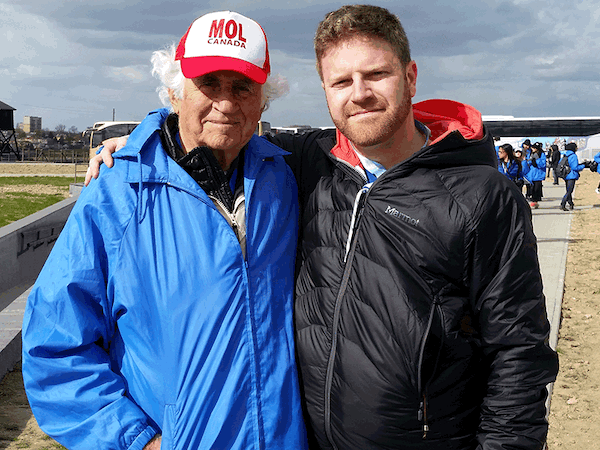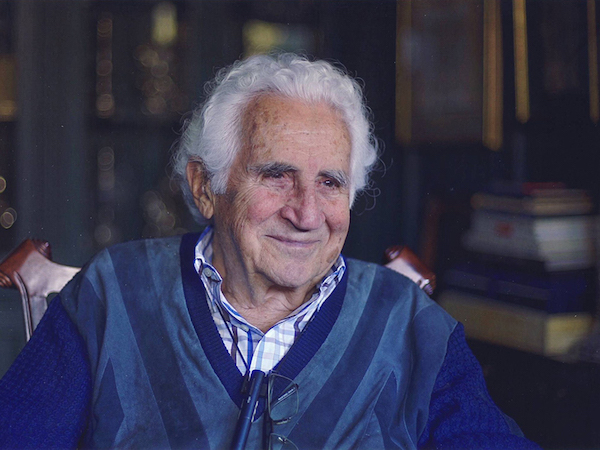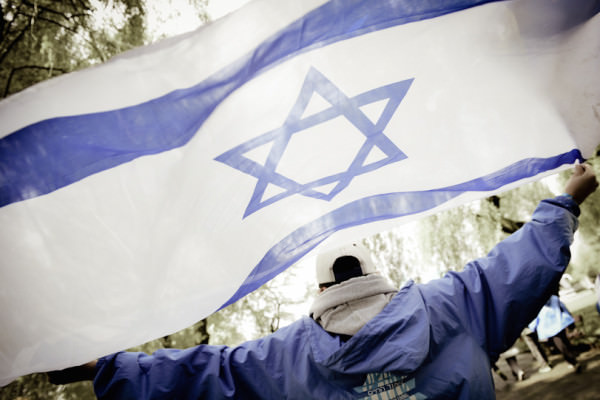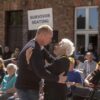“The future of the Jewish Nation is in its youth. When I see tens of thousands of youth marching together between Auschwitz to Birkenau, my optimism comes back, and I feel again like we have a chance in this world. If I can impact one student each year on the March of the Living to commit to educating future generations about the Holocaust, and the importance of not becoming a bystander, then I have fulfilled my mission.” – Bill Glied
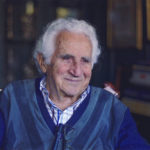 We mourn the loss of holocaust survivor and March of the Living educator, Bill Glied, z”l, who travelled with our Canadian Delegation for many years. Bill was born in Subotica, Serbia, in 1930. He was deported to Auschwitz-Birkenau in 1944 along with his family. Upon arrival in Auschwitz, Bill and his father were sent to the right and his mother, sister and rest of the family was sent to the left. That was the last time he saw them. Bill was later transferred to Dachau in Germany and worked as a slave labourer, building an underground company, which would manufacture parts for BMW. On April 29, 1945, Bill was liberated by the US Army. After spending six weeks in hospital, recovering from Typhoid Fever, Bill returned to Serbia and lived with his aunt and uncle. Bill arrived in Canada, as an orphan, in September 1947.
We mourn the loss of holocaust survivor and March of the Living educator, Bill Glied, z”l, who travelled with our Canadian Delegation for many years. Bill was born in Subotica, Serbia, in 1930. He was deported to Auschwitz-Birkenau in 1944 along with his family. Upon arrival in Auschwitz, Bill and his father were sent to the right and his mother, sister and rest of the family was sent to the left. That was the last time he saw them. Bill was later transferred to Dachau in Germany and worked as a slave labourer, building an underground company, which would manufacture parts for BMW. On April 29, 1945, Bill was liberated by the US Army. After spending six weeks in hospital, recovering from Typhoid Fever, Bill returned to Serbia and lived with his aunt and uncle. Bill arrived in Canada, as an orphan, in September 1947.
Bill passed away in February 17, 2018 in Toronto, Canada. He is survived by his wife Marika, three daughters and sons-in-law, eight grandchildren, one grandson-in-law and his first great grandchild born in July 2018.
It was the 2009 March of the Living and I asked Bill to say a few words at the start of the international ceremony in Auschwitz-Birkenau to the thousands of students gathered there. As always, Bill was brief, touching and eloquent.
Since 1988, I have organized many International March of the Living ceremonies, but Bill’s words in 2009 are among the most memorable.
“There is a unique and noble custom in the Jewish religion. We go to the cemetery and find the graves of our loved ones. Then we take a small stone and place it on the tombstone to say, ‘We are here. We haven’t forgotten you. We love you. We remember you.’ “In Auschwitz there are no tombstones. All those who perished here – my mother, my sister, my whole family – they have no monuments. But all of you who are standing here today, you are the little stones, and you are saying, ‘We are here. We haven’t forgotten you. We love you.’”
